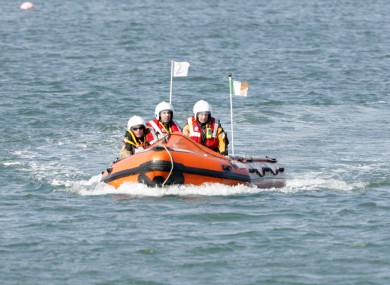Whether or not you intend to pay, you still need to find out how it will affect you
We’ve passed the point where they might have repealed the tax. If you don’t intend to pay, at least find out how this could affect you. If you intend to pay, the information is there to tell you how, when and even how much.
The valuation date and the date for determining who should pay is May 1. The Revenue will write to everyone it believes is liable in mid-March estimating what tax they think is due. But each taxpayer is responsible for making sure they use the right value and pay the correct tax. A facility to help taxpayers to value their property will be available at http://www.revenue.ie from March.
In the meantime, you could find guidance athttp://www.propertypriceregister.ie. This is produced by the Property Services Regulatory Authority (PSRA) and it records the actual prices at which all residential properties were sold since January 2010.
Local property tax is charged at 0.18 per cent on properties that are valued up to €1,000,000. There are 19 valuation bands for property that is worth no more than a million. The first deals with property valued up to €100,000. The tax is calculated based on the midpoint of the band. In this case, it is €50,000. In a full year, LPT would be €90. In 2013, tax is only charged for half the year. So if your property is valued up to €100,000, the tax due for 2013 is €45.
For property worth more than €100,000, the valuation bands go up in increments of €50,000. There is a ready-reckoner in Revenue’s LPT tax guide, which you will find at http://www.revenue.ie. Say your property is worth between €550,001 and €600,000, for which the mid-point is €575,000, you pay tax in 2013 of €517. But in a full year the tax will be €1,035. Have a look at the Revenue’s guide and see can you work out what tax you should pay. Then check it off the Revenue’s letter, which you can expect to receive in March. If the Revenue Commissioners’ figures surprise you, maybe it’s time to call in the valuers.
Cardinal O’Brien rejects inappropriate behaviour amid allegations


The Observer newspaper said Cardinal Keith O’Brien, 74, the archbishop of St. Andrews and Edinburgh, who is known for outspoken views on homosexuality, had been reported to the Vatican over allegations of inappropriate behaviour stretching back 30 years.
“Cardinal O’Brien contests these claims and is taking legal advice,” a spokesman for the cardinal said.
Three priests and a former priest, from a Scottish diocese, have complained to the Vatican and demanded O’Brien’s immediate resignation, the newspaper said, adding that they wanted the conclave to choose Pope Benedict’s successor to be “clean”.
The Observer gave little detail on the allegations but said one complainant had said O’Brien made an inappropriate approach after night prayers. Another priest complained of unwanted behaviour by O’Brien after a late-night drinking session.
Last week, O’Brien advocated allowing Catholic priests to marry as many found it difficult to cope with celibacy.
His comments last year labelling gay marriage a “grotesque subversion” landed him with a “Bigot of the Year” award from gay rights group Stonewall.
The Catholic Church’s handling of the sexual abuse of children and others by priests has dogged the papacy of Benedict, who is due to step down on Thursday after becoming the first pope in centuries to choose to resign.
The next leader of the world’s 1.2 billion Catholics will be chosen by 117 cardinals in the Vatican’s Sistine Chapel.
Almost 10,000 people have signed a petition urging a U.S. cardinal not to take part in selecting the next pope, saying to do so would insult victims of sexual abuse by priests committed while he was Archbishop of Los Angeles from 1985 to 2011.
25% of cigarettes smoked in Ireland are illegal


More than a quarter of the cigarettes smoked in Ireland last year were illegal, it has been claimed.
The proportion of non-duty paid tobacco in the country has risen, with manufacturers blaming increased taxation.
One in three cigarettes in Waterford was purchased from the black market, the Irish Tobacco Manufacturers’ Group said.
A spokesman said: “We felt that given the large increase that was put on legitimate cigarettes in December 2011, there would be an upsurge in the illegal market and that is exactly what has happened.
“The shocking reality is that one third of tobacco consumed in Ireland in 2012 completely avoided excise and VAT.”
In 2011 excise duty on a packet of cigarettes rose by 25 cents and VAT increased to 23%.
According to the tobacco lobby group, the level of non Irish duty paid (NIDP) cigarettes in Ireland rose to 28% in 2012, making it the second biggest tobacco supplier in the country.
The research, carried out by collecting empty packs from 22 towns and cities across the country, indicates an increase since 2011 when NIDP was measured at 25% in Ireland.
The highest incidence of NIDP cigarettes in Ireland was measured in Waterford, which has an average level of 33% or one-in-three cigarettes being purchased from the black market.
The HSE has said extensive research has demonstrated the effectiveness of higher taxes in reducing smoking.
According to the Irish Cancer Society, smoking is the biggest single cause of cancer and lung cancer is the biggest killer.
Last year’s budget increased the price of 20 cigarettes by 25 cents
Give Horsemeat-tainted food to poor 'Says German minister'

DIRK NIEBEL SAID IT WOULD BE IRRESPONSIBLE TO THROW AWAY PALATABLE AND SAFE FOOD
Germany’s development minister has suggested that horsemeat mislabelled as beef should be distributed to the poor.
Dirk Niebel said he supported the proposal by a member of the governing CDU party, and concluded: “We can’t just throw away good food.”
The opposition dismissed the idea, but a priest said it should be considered.
Meanwhile, traces of horse DNA have been found in six tonnes of minced beef and 2,400 packs of lasagne Bolognese seized from a company in Italy.
The products were packaged by Italian group Primia, based near Bologna.
The health ministry said Primia had used meat from another company in Brescia and originally supplied by two other companies, also based there.
It is the first positive test in Italy since the scandal erupted last month.
To throw away food that could be consumed without risk is equally bad as false labelling and cannot be a solution”
Earlier on Saturday, the Italian authorities said they had found no traces of horsemeat in beef products seized this week from the Swiss food giant Nestle.
On Monday, Nestle announced that it was withdrawing two types of beef pasta meals from supermarkets in Italy and Spain after tests revealed traces of horse DNA.
A problem was identified with a supplier in Germany, H J Schypke, it said.
Two other German companies, Dreistem-Konserven and Vossko, have been accused of manufacturing products containing horsemeat. Both have also blamed their own suppliers.
On Friday, Germany’s consumer affairs ministry announced that it had now found traces of horse DNA in 67 of 830 food products tested.
‘Absurd’
On Saturday, a prominent member of Germany’s governing CDU party, Hartwig Fischer, told Bild newspaper that products tainted with horsemeat should be distributed to the poor.
“Even in Germany, unfortunately there are people for whom it is financially tight, even for food. I think that we can’t just throw away good food here in Germany.”
The opposition has dismissed the idea as “absurd” and an insult to poor people, our correspondent adds, but Prelate Bernhard Felmberg, the senior representative of the Evangelical Church in Germany (EKD), has backed the proposal.
“We as a Church find the throw-away mentality in our society concerning. How and whether to distribute the products in question would have to be examined,” the priest said.
“But to throw away food that could be consumed without risk is equally bad as false labelling and cannot be a solution.”
Meanwhile in French President Francois Hollande visited the annual Farm Show in Paris, in an apparent bid to restore confidence in the French food industry.
The country has been at the heart of the scandal, after it emerged that tonnes of horsemeat from Romanian abattoirs had been processed into ready-made meals in France.
Mr Hollande said he would push for continent-wide labelling rules on the meat in prepared foods.
“There is a need for traceability, that is what I want from talks on a European level,” Mr Hollande said.
Earlier, three major French food companies agreed to use only French beef in their products.
Findus – one of the firms at the heart of the scandal – and retailers Carrefour and Intermarche announced at the Farm Show that they would start using labels saying “100% French” from March.
European agriculture ministers are expected to discuss origin labelling and meat traceability at a meeting in Brussels on Monday.
‘Ghost ship’ spotted drifting toward the Irish coast after it was hauled out of Canadian waters


Three weeks after it was cast adrift into the North Atlantic, a rat-infested “ghost ship” from St. John’s has put European authorities on alert after it reappeared drifting towards the Irish coast.
The 100-metre-long M/V Lyubov Orlova is still 2,400 km from the beaches of Galway, but the Irish Coast Guard is poring over satellite imagery to make sure the ship can be wrangled away before it drifts into shipping lanes or breaks apart on the coast.
“Were the vessel to enter Irish waters, then procedures will be put in place to deal with the vessel at that stage,” wrote Caroline Ryan, a spokeswoman with the Irish Department of Transport, in an email to the Post.
In better times, the Yugoslavia-built vessel worked as an “expedition” cruise ship specializing in polar regions. That came to an end in September, 2010 when Canadian authorities seized the ship during a stopover in St. John’s, Newfoundland as part of a lawsuit led by Cruise North Expeditions against the vessel’s Russian owners.
On Jan. 23 — after two years of sitting derelict in St. John’s harbour — the ship was sold to a scrap merchant for $275,000, hooked up to a tugboat and hauled out to sea on course to the Dominican Republic, where it was to be sold for scrap.
Less than 24 hours out of port, however, the tow-line snapped. Husky Energy dispatched the supply ship Atlantic Hawk to capture the vessel and tow it away from offshore oil platforms, but once it was firmly within international waters, the ship was again set loose.
In a statement, Transport Canada assured Canadians at the time that it was “very unlikely” that the ship would veer back into Canadian waters.
The ship remained largely forgotten until a report from the U.S.-based National Geospatial-Intelligence Agency pinpointed the ship on a course to Europe. The Agence-France Press published news of the document this week.
Under different circumstances, a ghost ship might have difficulty making it across the Atlantic in winter. But the Lyubov Orlova is large enough to withstand heavy seas and left port with perfectly balanced ballast tanks.
As of Friday, Ireland was pulling together satellite data and getting in touch with Icelandic marine authorities but “given the size of the North Atlantic search area (approximately 16,000 square miles) locating a vessel without any transponders functioning onboard is very difficult,” said Ms. Ryan.
“If it’s going to hit shore I would expect the Irish government would take the ship, bring it into a port and maybe look for compensation from the owner for any costs associated with that,” said William Cahill, a St. John’s lawyer and Chair of the Canadian Bar Association’s Maritime Law Section.
Or Ireland could do what the U.S. Coast Guard did last spring. When a derelict fishing vessel set adrift by the Japanese tsunami approached the Alaskan coast, a Coast Guard cutter was sent to sink it with a cannonade of high-explosive fire.
A team of investigators with the Canadian Transportation Safety Board are in St. John’s investigating the Lyubov Orlova episode, including a careful inspection of the Charlene Hunt, the U.S.-flagged tug that first lost control of the ship. In notably poor condition, the tug was ordered back to port over concerns for the safety of the crew.
Whatever the Lyubov Orlova does to Ireland, it is unlikely that Canada will be held liable said Mr. Cahill, who, for two years enjoyed a clear view of the Lyubov Orlova from his St. John’s law office.
“You would be hard pressed to say the Canadian government is responsible for a non-Canadian registered ship.”
Ireland is apparently well-positioned to absorb Atlantic debris drifting in from North America. Last October, a nine-year-old in the Irish fishing village of Passage East discovered a message-in-a-bottle that two Quebec girls had tossed into the Gulf of St. Lawrence eight years earlier.
Most famously, in 1913 a man walking his dog near Cork Harbour, Ireland found a message-in-a-bottle that had been cast from the deck of the doomed RMS Titanic as the steamer approached Cape Race, Newfoundland.
COASTAL SEARCH FOR MISSING GALWAY MAN

The search for the missing man, Tom Ward, has been stepped up in a Galway coastal this weekend with Oranmore Civil Defence joining the search efforts.
The volunteers began searching earlier this week after being alerted by the Gardai. They are focusing their efforts on a shoreline search of the Galway Bay area, reaching south towards Oranmore and Kinvara.
All Oranmore Civil Defence members are trained in land search techniques, with some volunteers qualified in advanced powerboat operations which can aid in any water-based search.
39-year-old Tom Ward, who has family in the Westside of the city, was last seen in Galway city centre on February 7th.
Galway Gardai are trying to trace the whereabouts of the missing man since last Sunday when they were alerted to his disappearance by family members.


No comments:
Post a Comment